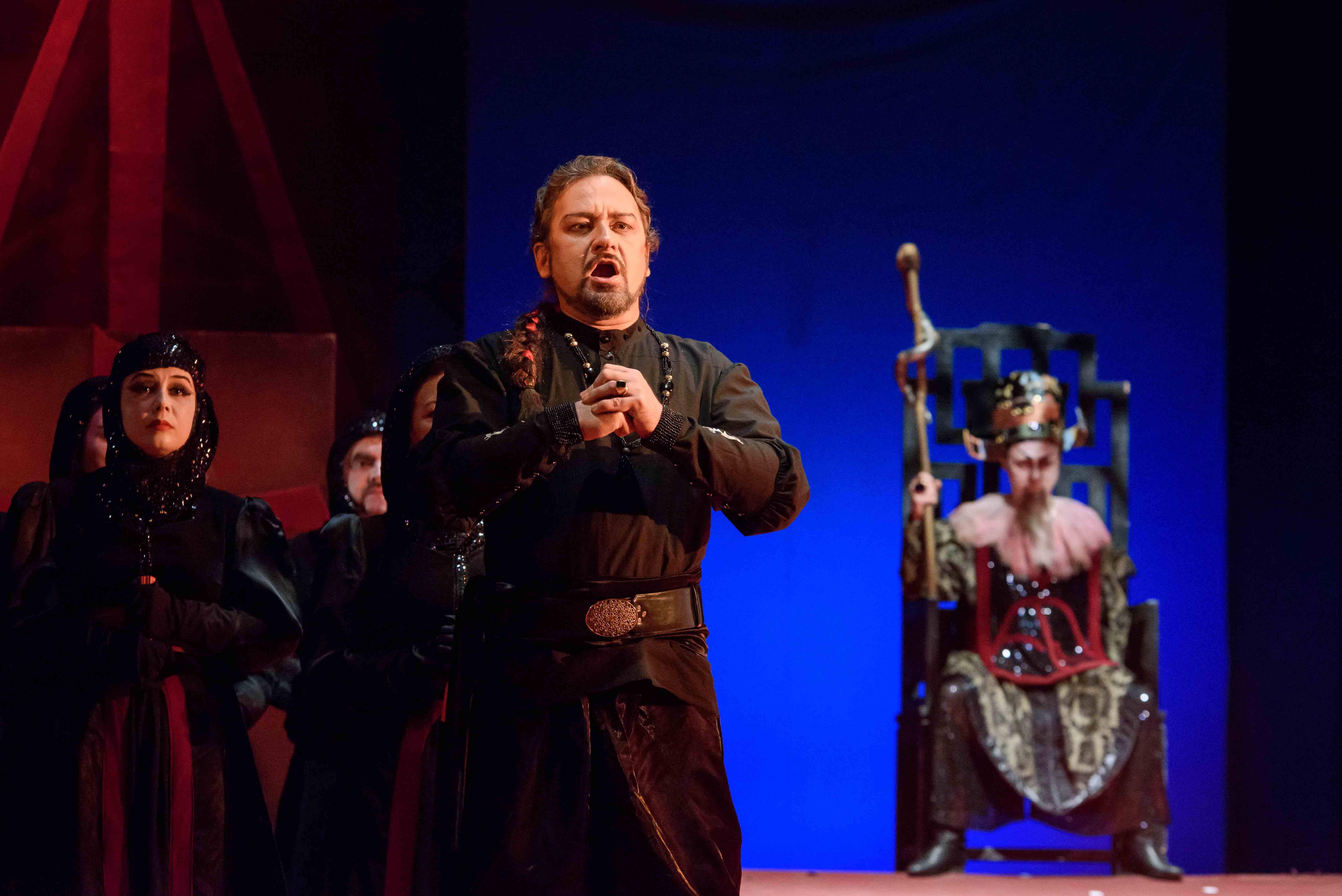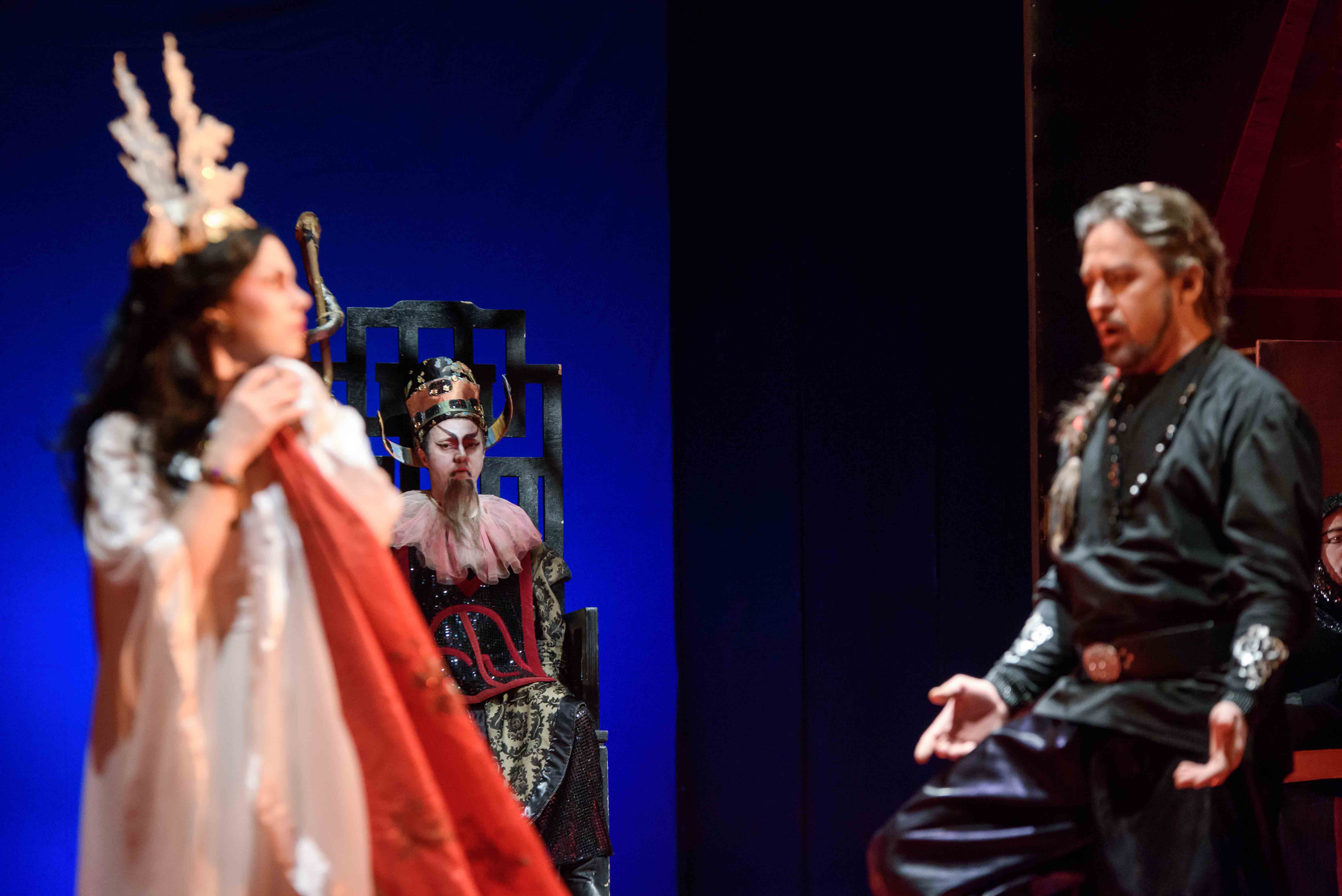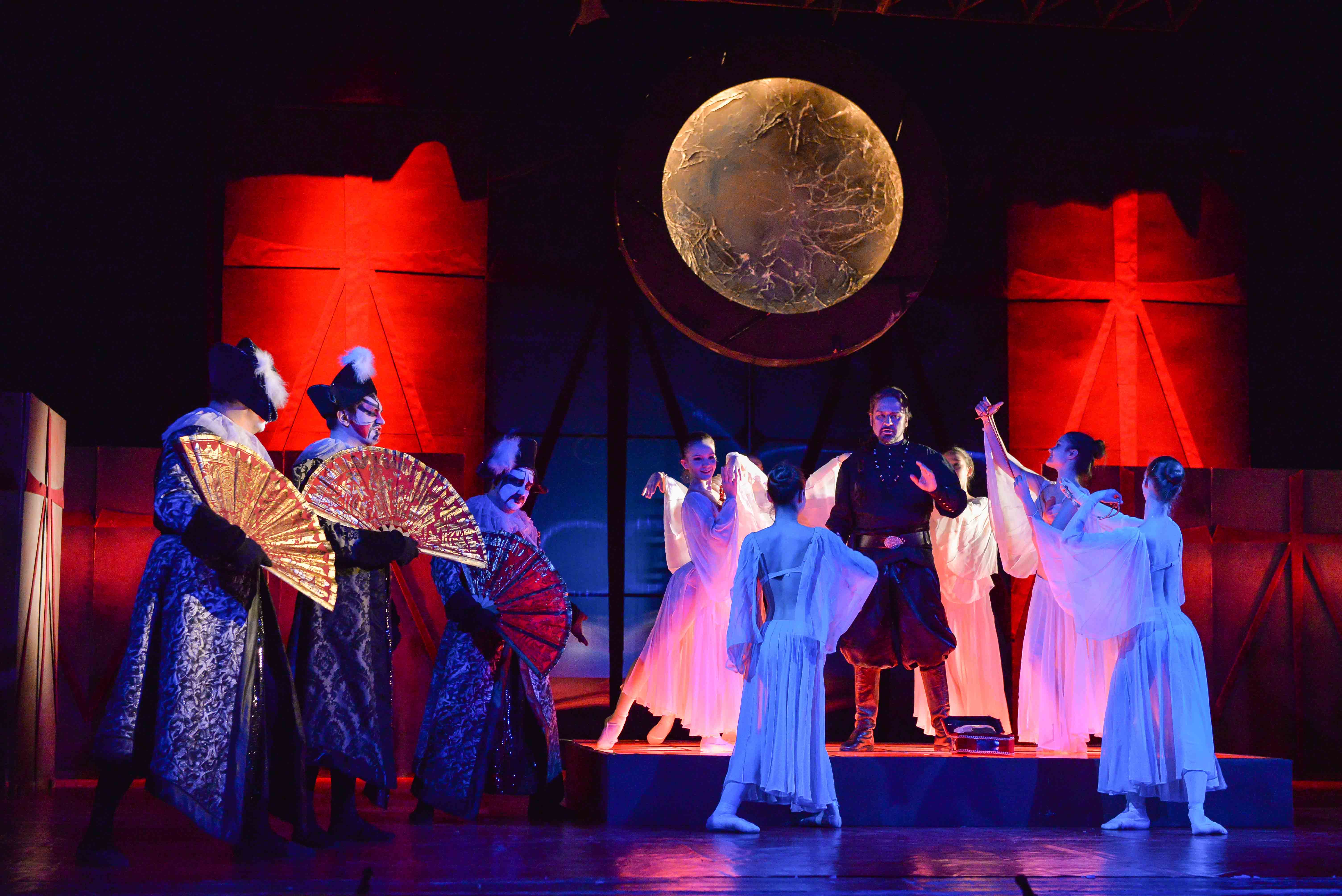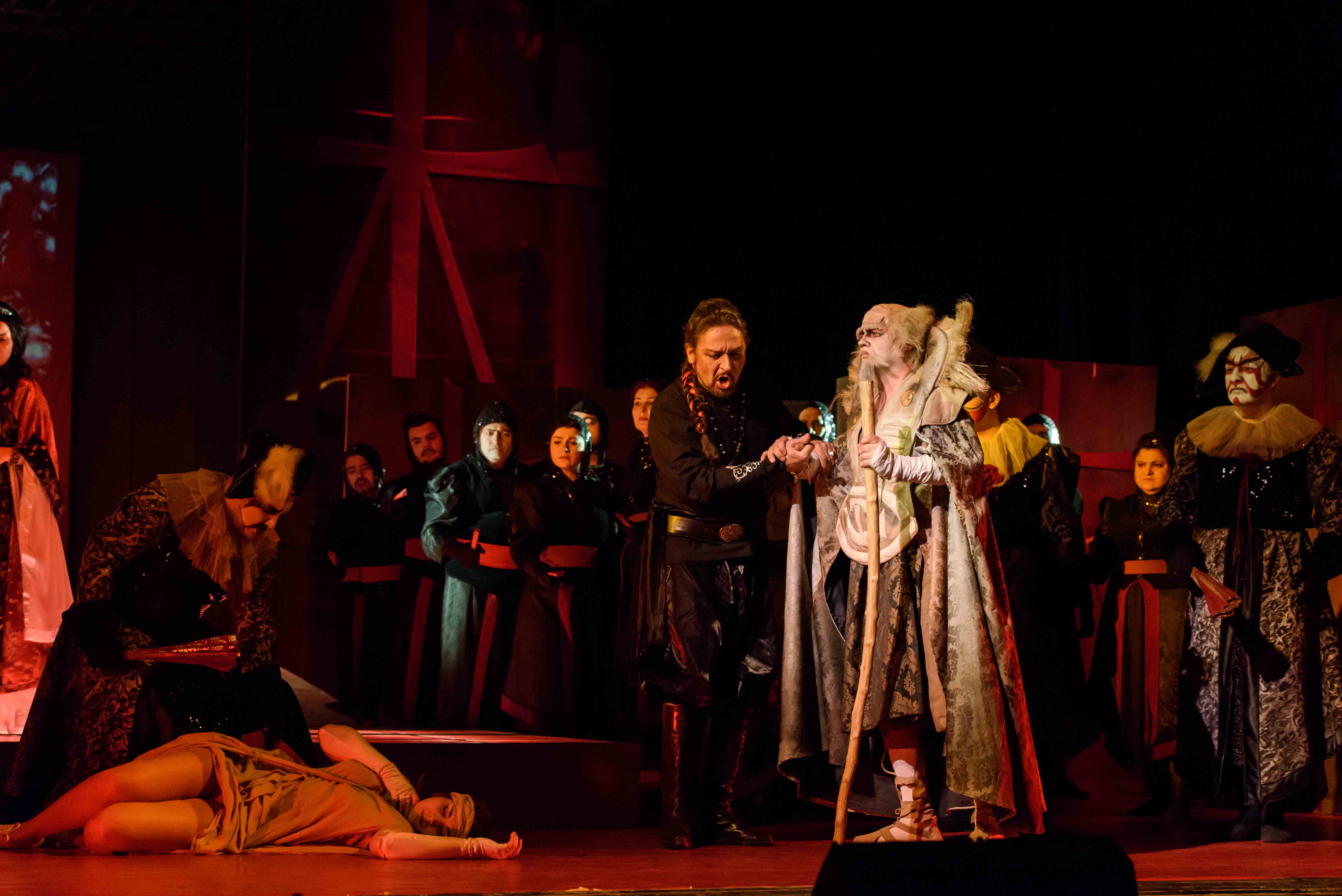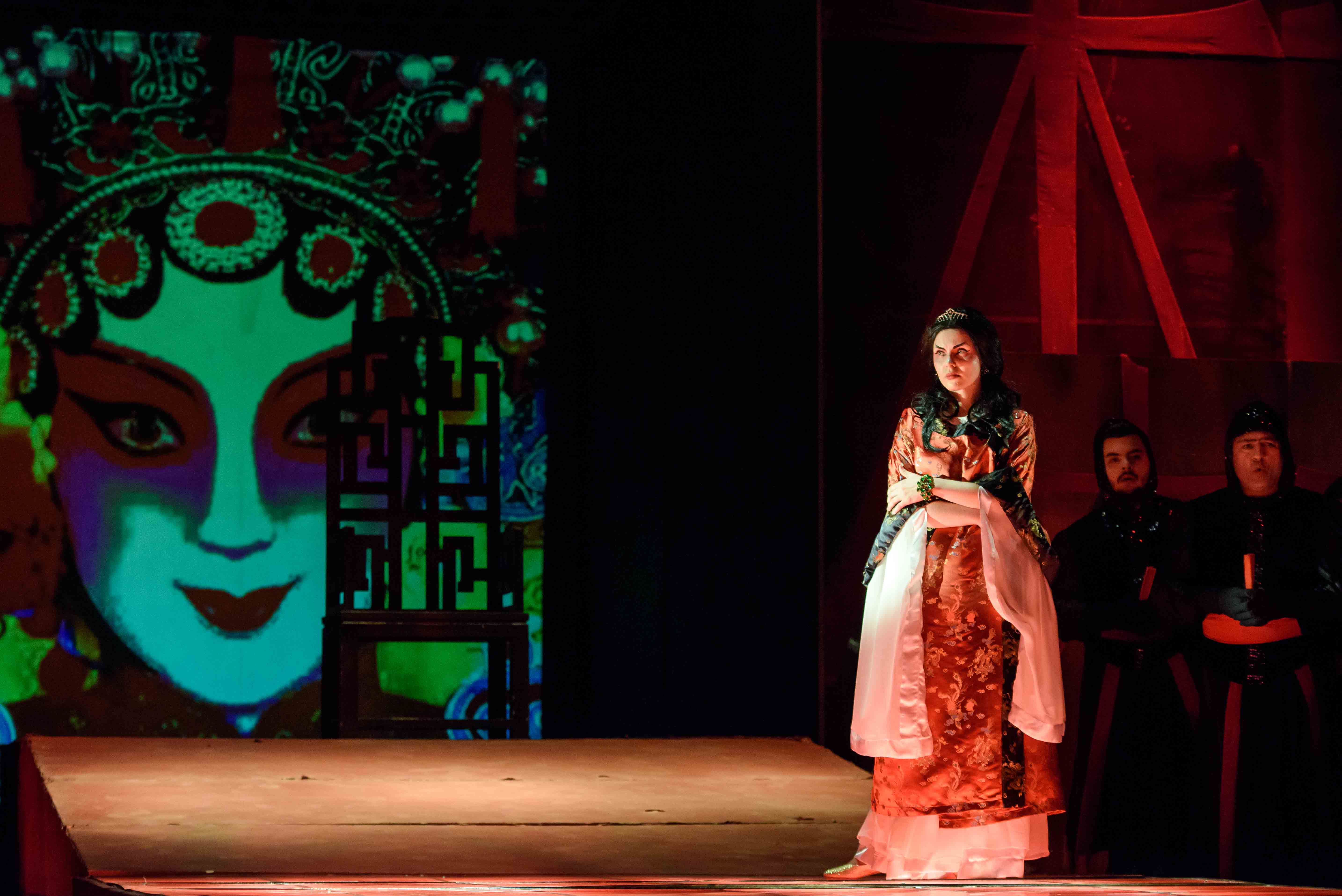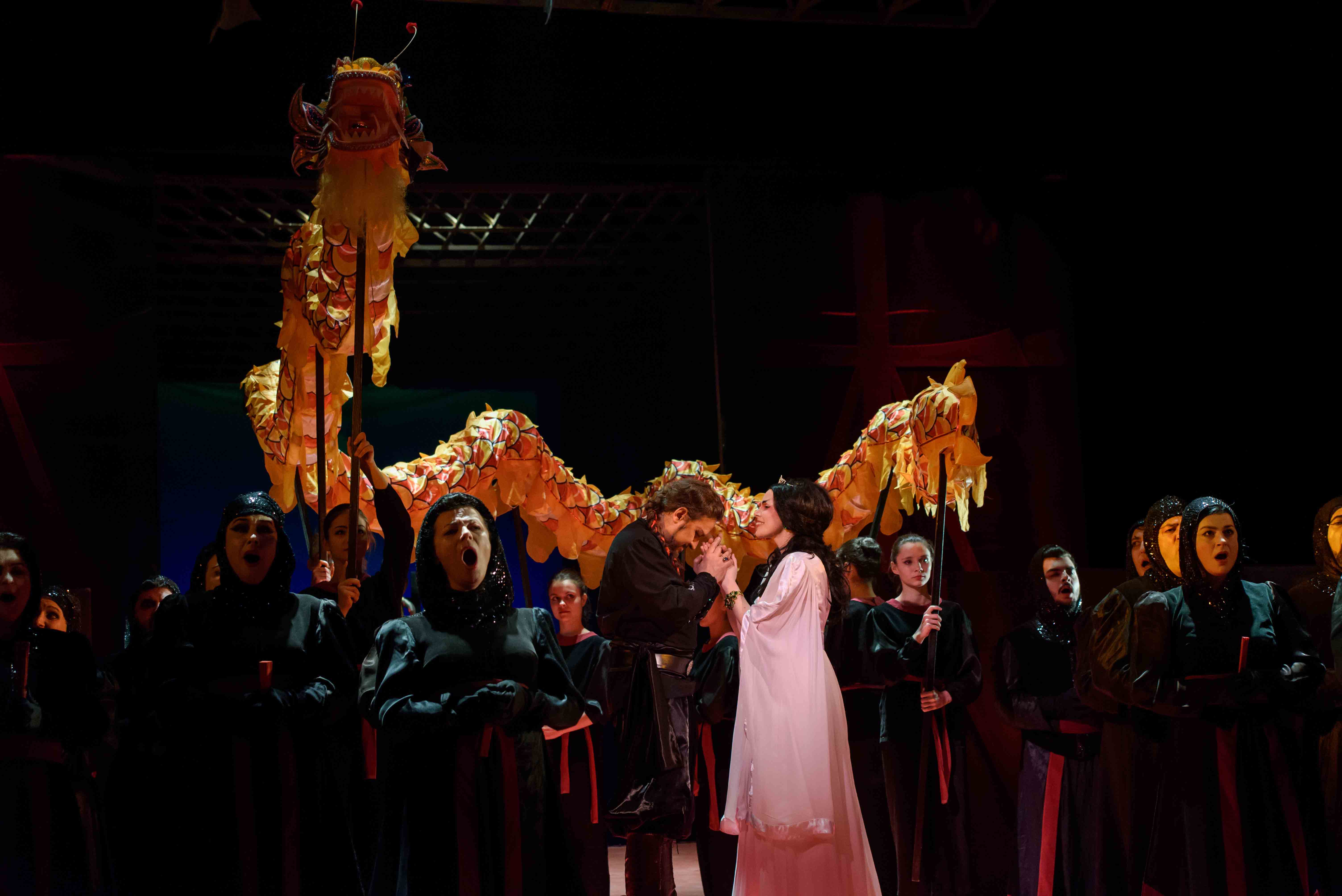
MAIN HALL
distribution
Artistic direction: Rareș Trifan
Scenography: Mihai Ciupe
Assistance stage movement: Daniela Drăgușin
Chorus conductor: Corneliu Felecan
Princess Turandot: Astrik Khanamiryan (guest)
The Unknown Prince Calaf: Hector Lopez
Liù, a slave girl: Daniela Oimberg (debut; guest)
Timur, the deposed King of Tartay: Simonfi Sandor
Ping, Lord Chancellor: Cristian Hodrea
Pong, Head chef of the Imperial Kitchen: Florin Pop
Pang, Majordomo: Cristian Mogoșan
A Mandarin: Marius Aron
The Emperor Altoum: Andrei Toader
The Prince of Persia: Tiberiu Szasz
The Executioner: Adriana Țidor
The Orchestra and the Chorus of the Romanian National Opera in Cluj-Napoca
Junior-Vip Chorus
Conductor: Anca Mona Mariaș
description
show category: opera
Opera in three acts on a libretto by Giuseppe Adami and Renato Simoni, based on the homonym play by Carlo Gozzi and its adaptation by Friedrich Schiller
Turandot, the last opera of Giacomo Puccini, finished, due to the composer’s death, by his student Franco Alfano, stands out especially by the way it depicts the feelings of love that stand at the basis of the action.
The story takes place in a distant time, in the fairy-tale world of Peking, led by the authoritarian princess Turandot. Firmly determined to keep her purity and independence, she meets her presumable suitors with three difficult riddles and, in case they are not solved correctly, with a death sentence. In spite of Calaf’s unexpected triumph, the princess refuses to accept him as her husband. Unfortunately, the challenge that the ,,foreigner” threw out to her, as well – that Turandot discovers his name – will end by Liù’s (Calaf’s slave) supreme sacrifice, as she tries to protect her master. Her gesture affects deeply the princess, in the end Turandot admiting the feelings she firstly denied, in front of Calaf and the entire citizenry, making everyone happy.
While chinese melodies and the oriental sonorities bring genuineness to the opera, the brilliant vocal lines of the soloists successfuly depict both the interior conflict of the heroine and the bravery, passion and will of power of the male lead. After all, Calaf’s second aria – Nessun dorma! found at the beginning of the third act – is one of the most popular in the history of the opera genre, renowned for the degree of difficulty and the expresiveness displayed by world-famous interpreters like Mario del Monaco, Giuseppe di Stefano, Palcido Domingo, José Carreras or Luciano Pavarotti.
The performance has two breaks and ends around 10:00 p.m.
Recommended age: 9+
photo gallery
NICU CHERCIU

